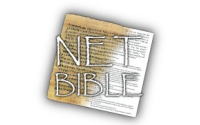June 22 – 1 Chronicles 9 thru 11 from the Old Testament
1 Chronicles 9 thru 11 –
9:1 Genealogical records were kept for all Israel; they are recorded in the Scroll of the Kings of Israel.
Exiles Who Resettled in Jerusalem
The people of Judah were carried away to Babylon because of their unfaithfulness. 9:2 The first to resettle on their property and in their cities were some Israelites, priests, Levites, and temple servants. 9:3 Some from the tribes of Judah, Benjamin, and Ephraim and Manasseh settled in Jerusalem.
9:4 The settlers included: Uthai son of Ammihud, son of Omri, son of Imri, son of Bani, who was a descendant of Perez son of Judah.
9:5 From the Shilonites: Asaiah the firstborn and his sons.
9:6 From the descendants of Zerah: Jeuel.
Their relatives numbered 690.
9:7 From the descendants of Benjamin:
Sallu son of Meshullam, son of Hodaviah, son of Hassenuah; 9:8 Ibneiah son of Jeroham; Elah son of Uzzi, son of Mikri; and Meshullam son of Shephatiah, son of Reuel, son of Ibnijah.
9:9 Their relatives, listed in their genealogical records, numbered 956. All these men were leaders of their families.
9:10 From the priests:
Jedaiah; Jehoiarib; Jakin; 9:11 Azariah son of Hilkiah, son of Meshullam, son of Zadok, son of Meraioth, son of Ahitub the leader in God’s temple; 9:12 Adaiah son of Jeroham, son of Pashhur, son of Malkijah; and Maasai son of Adiel, son of Jahzerah, son of Meshullam, son of Meshillemith, son of Immer.
9:13 Their relatives, who were leaders of their families, numbered 1,760. They were capable men who were assigned to carry out the various tasks of service in God’s temple.
9:14 From the Levites:
Shemaiah son of Hasshub, son of Azrikam, son of Hashabiah a descendant of Merari; 9:15 Bakbakkar; Heresh; Galal; Mattaniah son of Mika, son of Zikri, son of Asaph; 9:16 Obadiah son of Shemaiah, son of Galal, son of Jeduthun; and Berechiah son of Asa, son of Elkanah, who lived among the settlements of the Netophathites.
9:17 The gatekeepers were:
Shallum, Akkub, Talmon, Ahiman, and their brothers. Shallum was the leader; 9:18 he serves to this day at the King’s Gate on the east. These were the gatekeepers from the camp of the descendants of Levi.
9:19 Shallum son of Kore, son of Ebiasaph, son of Korah, and his relatives from his family (the Korahites) were assigned to guard the entrance to the sanctuary. Their ancestors had guarded the entrance to the Lord’s dwelling place. 9:20 Phinehas son of Eleazar had been their leader in earlier times, and the Lord was with him. 9:21 Zechariah son of Meshelemiah was the guard at the entrance to the meeting tent.
9:22 All those selected to be gatekeepers at the entrances numbered 212. Their names were recorded in the genealogical records of their settlements. David and Samuel the prophet had appointed them to their positions. 9:23 They and their descendants were assigned to guard the gates of the Lord’s sanctuary (that is, the tabernacle). 9:24 The gatekeepers were posted on all four sides – east, west, north, and south. 9:25 Their relatives, who lived in their settlements, came from time to time and served with them for seven-day periods. 9:26 The four head gatekeepers, who were Levites, were assigned to guard the storerooms and treasuries in God’s sanctuary. 9:27 They would spend the night in their posts all around God’s sanctuary, for they were assigned to guard it and would open it with the key every morning. 9:28 Some of them were in charge of the articles used by those who served; they counted them when they brought them in and when they brought them out. 9:29 Some of them were in charge of the equipment and articles of the sanctuary, as well as the flour, wine, olive oil, incense, and spices. 9:30 (But some of the priests mixed the spices.) 9:31 Mattithiah, a Levite, the firstborn son of Shallum the Korahite, was in charge of baking the bread for offerings. 9:32 Some of the Kohathites, their relatives, were in charge of preparing the bread that is displayed each Sabbath.
9:33 The musicians and Levite family leaders stayed in rooms at the sanctuary and were exempt from other duties, for day and night they had to carry out their assigned tasks. 9:34 These were the family leaders of the Levites, as listed in their genealogical records. They lived in Jerusalem.
Jeiel’s Descendants
9:35 Jeiel (the father of Gibeon) lived in Gibeon. His wife was Maacah. 9:36 His firstborn son was Abdon, followed by Zur, Kish, Baal, Ner, Nadab, 9:37 Gedor, Ahio, Zechariah, and Mikloth. 9:38 Mikloth was the father of Shimeam. They also lived near their relatives in Jerusalem.
9:39 Ner was the father of Kish, and Kish was the father of Saul. Saul was the father of Jonathan, Malki-Shua, Abinadab, and Eshbaal.
9:40 The son of Jonathan:
Meribbaal, who was the father of Micah.
9:41 The sons of Micah:
Pithon, Melech, Tahrea, and Ahaz.
9:42 Ahaz was the father of Jarah, and Jarah was the father of Alemeth, Azmaveth, and Zimri. Zimri was the father of Moza, 9:43 and Moza was the father of Binea. His son was Rephaiah, whose son was Eleasah, whose son was Azel.
9:44 Azel had six sons: Azrikam his firstborn, followed by Ishmael, Sheariah, Obadiah, and Hanan. These were the sons of Azel.
Saul’s Death
10:1 Now the Philistines fought against Israel. The Israelites fled before the Philistines and many of them fell dead on Mount Gilboa. 10:2 The Philistines stayed right on the heels of Saul and his sons. They struck down Saul’s sons Jonathan, Abinadab, and Malki-Shua. 10:3 The battle was thick around Saul; the archers spotted him and wounded him. 10:4 Saul told his armor bearer, “Draw your sword and stab me with it. Otherwise these uncircumcised people will come and torture me.” But his armor bearer refused to do it, because he was very afraid. So Saul took the sword and fell on it. 10:5 When his armor bearer saw that Saul was dead, he also fell on his sword and died. 10:6 So Saul and his three sons died; his whole household died together. 10:7 When all the Israelites who were in the valley saw that the army had fled and that Saul and his sons were dead, they abandoned their cities and fled. The Philistines came and occupied them.
10:8 The next day, when the Philistines came to strip loot from the corpses, they discovered Saul and his sons lying dead on Mount Gilboa. 10:9 They stripped his corpse, and then carried off his head and his armor. They sent messengers throughout the land of the Philistines proclaiming the news to their idols and their people. 10:10 They placed his armor in the temple of their gods and hung his head in the temple of Dagon. 10:11 When all the residents of Jabesh Gilead heard about everything the Philistines had done to Saul, 10:12 all the warriors went and recovered the bodies of Saul and his sons and brought them to Jabesh. They buried their remains under the oak tree in Jabesh and fasted for seven days.
10:13 So Saul died because he was unfaithful to the Lord and did not obey the Lord’s instructions; he even tried to conjure up underworld spirits. 10:14 He did not seek the Lord’s guidance, so the Lord killed him and transferred the kingdom to David son of Jesse.
David Becomes King
11:1 All Israel joined David at Hebron and said, “Look, we are your very flesh and blood! 11:2 In the past, even when Saul was king, you were Israel’s commanding general. The Lord your God said to you, ‘You will shepherd my people Israel; you will rule over my people Israel.’” 11:3 When all the leaders of Israel came to the king at Hebron, David made an agreement with them in Hebron before the Lord. They anointed David king over Israel, just as the Lord had announced through Samuel.
David Conquers Jerusalem
11:4 David and the whole Israelite army advanced to Jerusalem (that is, Jebus). (The Jebusites, the land’s original inhabitants, lived there.) 11:5 The residents of Jebus said to David, “You cannot invade this place!” But David captured the fortress of Zion (that is, the City of David). 11:6 David said, “Whoever attacks the Jebusites first will become commanding general!” So Joab son of Zeruiah attacked first and became commander. 11:7 David lived in the fortress; for this reason it is called the City of David. 11:8 He built up the city around it, from the terrace to the surrounding walls; Joab restored the rest of the city. 11:9 David’s power steadily grew, for the Lord who commands armies was with him.
David’s Warriors
11:10 These were the leaders of David’s warriors who helped establish and stabilize his rule over all Israel, in accordance with the Lord’s word. 11:11 This is the list of David’s warriors:
Jashobeam, a Hacmonite, was head of the officers. He killed three hundred men with his spear in a single battle.
11:12 Next in command was Eleazar son of Dodo the Ahohite. He was one of the three elite warriors. 11:13 He was with David in Pas Dammim when the Philistines assembled there for battle. In an area of the field that was full of barley, the army retreated before the Philistines, 11:14 but then they made a stand in the middle of that area. They defended it and defeated the Philistines; the Lord gave them a great victory.
11:15 Three of the thirty leaders went down to David at the rocky cliff at the cave of Adullam, while a Philistine force was camped in the Valley of Rephaim. 11:16 David was in the stronghold at the time, while a Philistine garrison was in Bethlehem. 11:17 David was thirsty and said, “How I wish someone would give me some water to drink from the cistern in Bethlehem near the city gate!” 11:18 So the three elite warriors broke through the Philistine forces and drew some water from the cistern in Bethlehem near the city gate. They carried it back to David, but David refused to drink it. He poured it out as a drink offering to the Lord 11:19 and said, “God forbid that I should do this! Should I drink the blood of these men who risked their lives?” Because they risked their lives to bring it to him, he refused to drink it. Such were the exploits of the three elite warriors.
11:20 Abishai the brother of Joab was head of the three elite warriors. He killed three hundred men with his spear and gained fame along with the three elite warriors. 11:21 From the three he was given double honor and he became their officer, even though he was not one of them.
11:22 Benaiah son of Jehoiada was a brave warrior from Kabzeel who performed great exploits. He struck down the two sons of Ariel of Moab; he also went down and killed a lion inside a cistern on a snowy day. 11:23 He even killed an Egyptian who was seven and a half feet tall. The Egyptian had a spear as big as the crossbeam of a weaver’s loom; Benaiah attacked him with a club. He grabbed the spear out of the Egyptian’s hand and killed him with his own spear. 11:24 Such were the exploits of Benaiah son of Jehoiada, who gained fame along with the three elite warriors. 11:25 He received honor from the thirty warriors, though he was not one of the three elite warriors. David put him in charge of his bodyguard.
11:26 The mighty warriors were:
Asahel the brother of Joab,
Elhanan son of Dodo, from Bethlehem,
11:27 Shammoth the Harorite,
Helez the Pelonite,
11:28 Ira son of Ikkesh the Tekoite,
Abiezer the Anathothite,
11:29 Sibbekai the Hushathite,
Ilai the Ahohite,
11:30 Maharai the Netophathite,
Heled son of Baanah the Netophathite,
11:31 Ithai son of Ribai from Gibeah in Benjaminite territory,
Benaiah the Pirathonite,
11:32 Hurai from the valleys of Gaash,
Abiel the Arbathite,
11:33 Azmaveth the Baharumite,
Eliahba the Shaalbonite,
11:34 the sons of Hashem the Gizonite,
Jonathan son of Shageh the Hararite,
11:35 Ahiam son of Sakar the Hararite,
Eliphal son of Ur,
11:36 Hepher the Mekerathite,
Ahijah the Pelonite,
11:37 Hezro the Carmelite,
Naarai son of Ezbai,
11:38 Joel the brother of Nathan,
Mibhar son of Hagri,
11:39 Zelek the Ammonite,
Naharai the Beerothite, the armor-bearer of Joab son of Zeruiah,
11:40 Ira the Ithrite,
Gareb the Ithrite,
11:41 Uriah the Hittite,
Zabad son of Achli,
11:42 Adina son of Shiza the Reubenite, leader of the Reubenites and the thirty warriors with him,
11:43 Hanan son of Maacah,
Joshaphat the Mithnite,
11:44 Uzzia the Ashterathite,
Shama and Jeiel, the sons of Hotham the Aroerite,
11:45 Jediael son of Shimri,
and Joha his brother, the Tizite,
11:46 Eliel the Mahavite,
and Jeribai and Joshaviah, the sons of Elnaam,
and Ithmah the Moabite,
11:47 Eliel,
and Obed,
and Jaasiel the Mezobaite.




